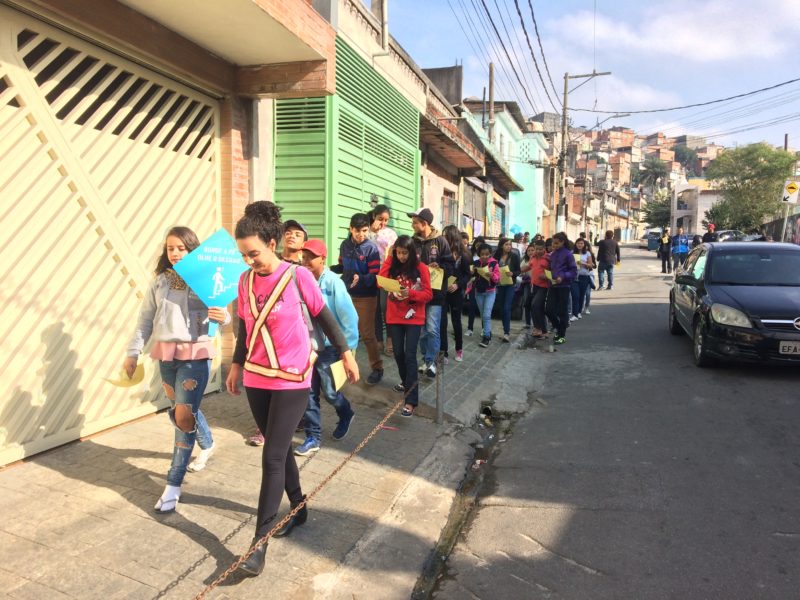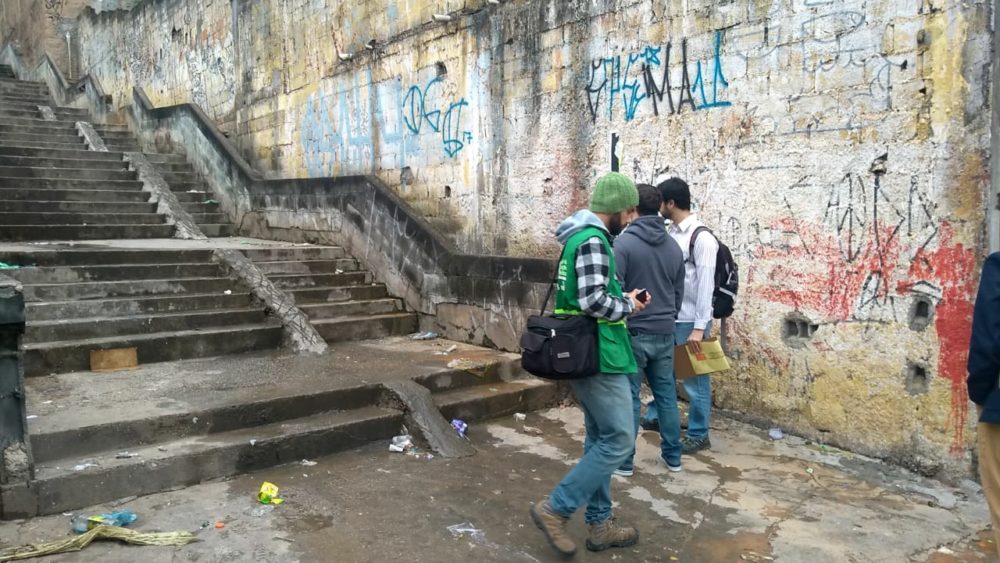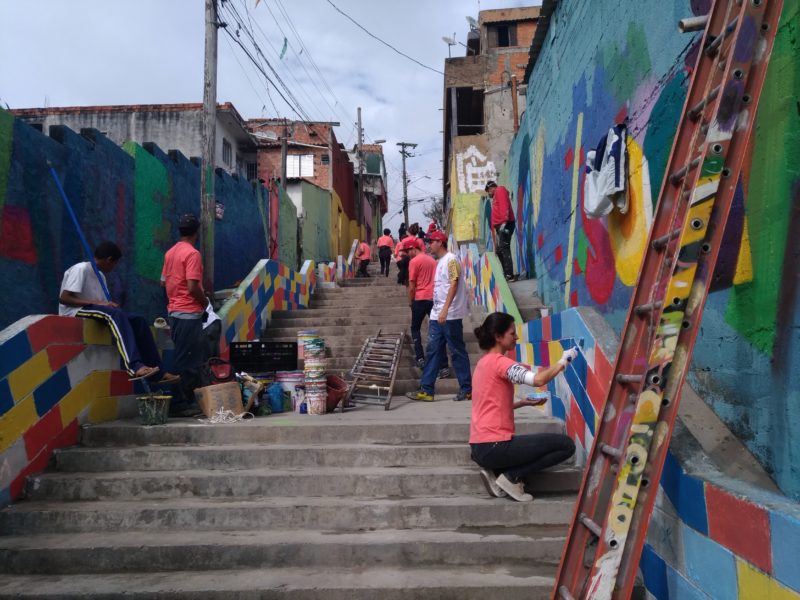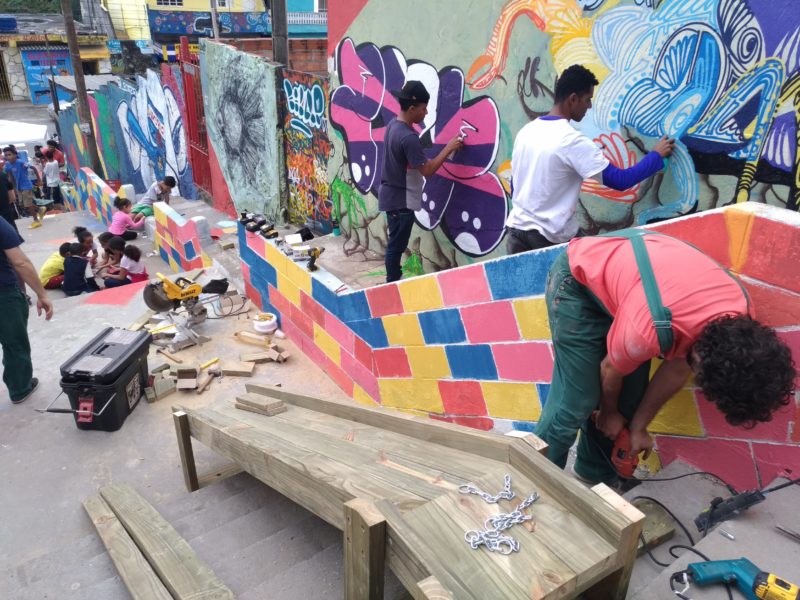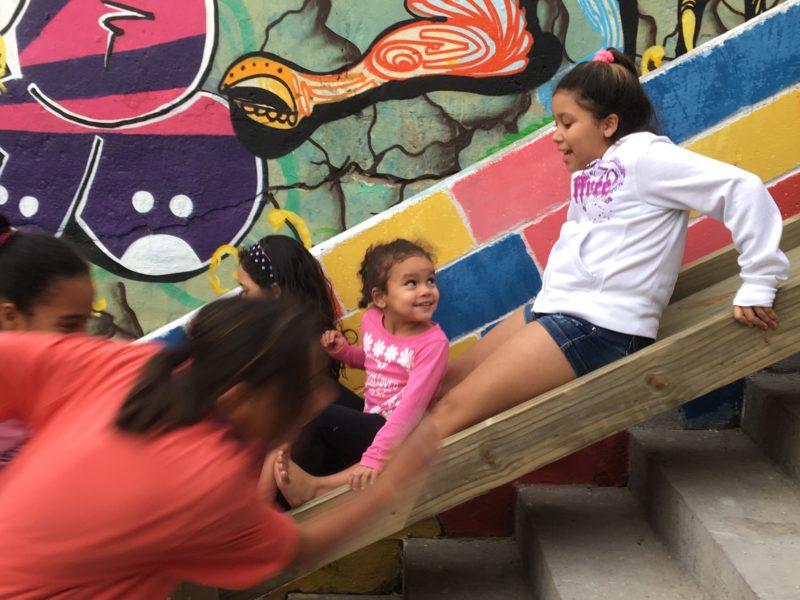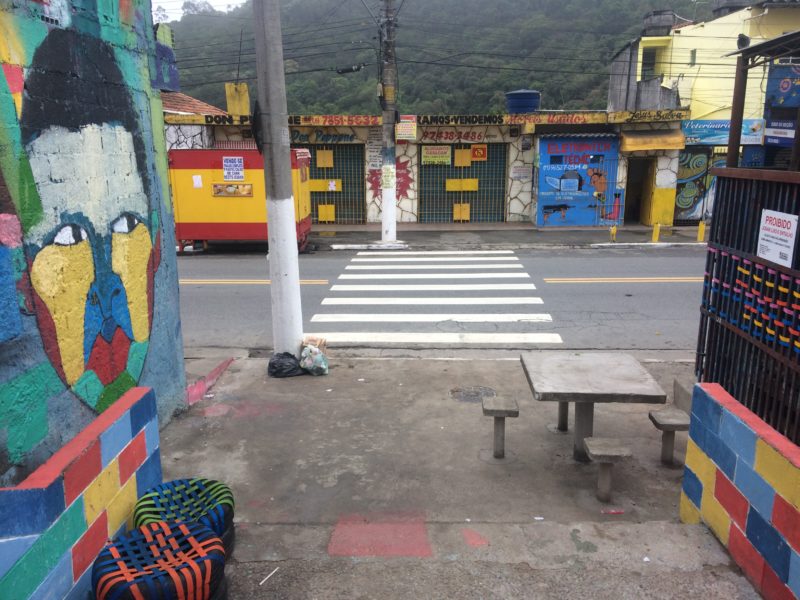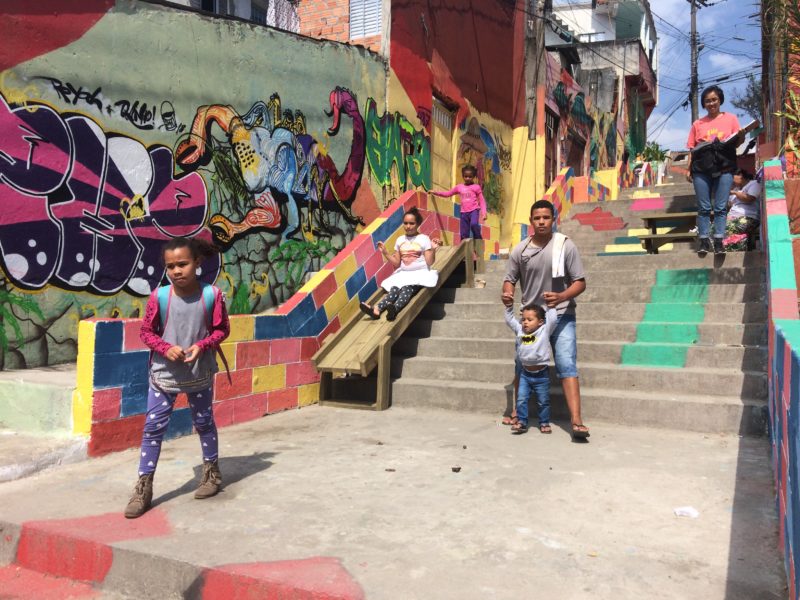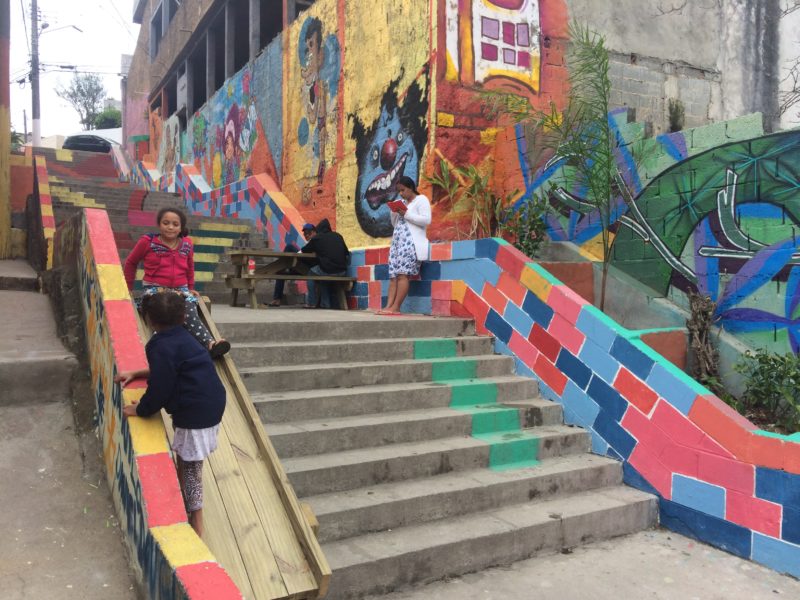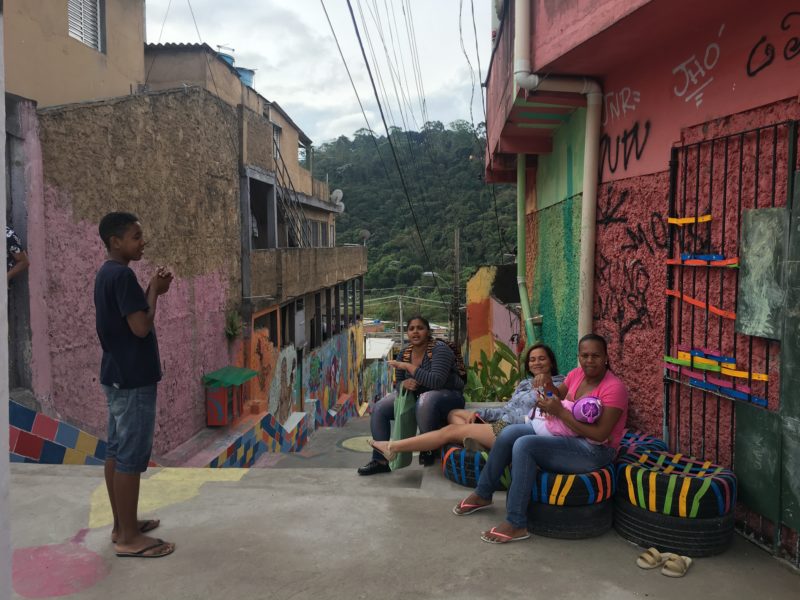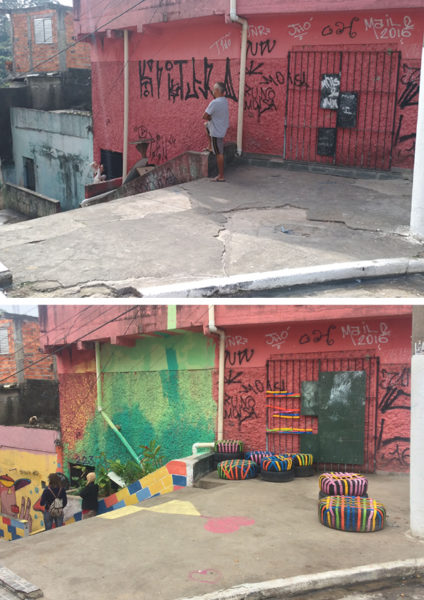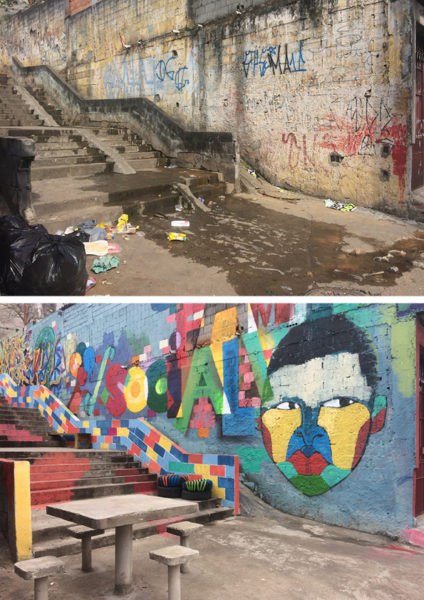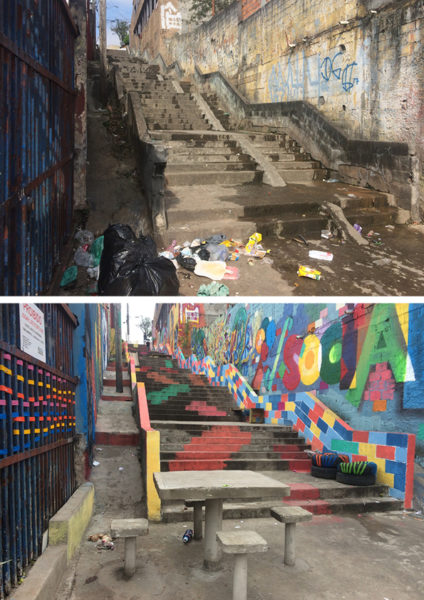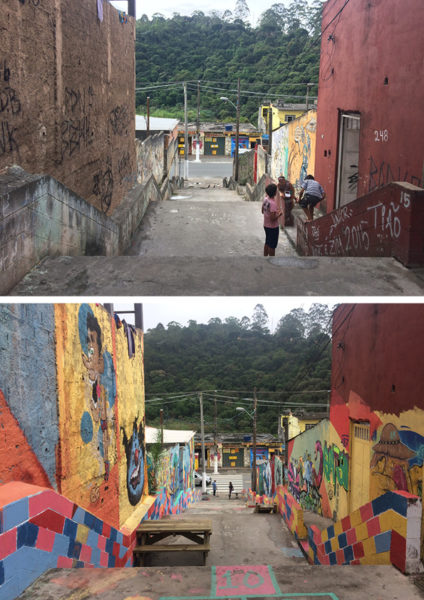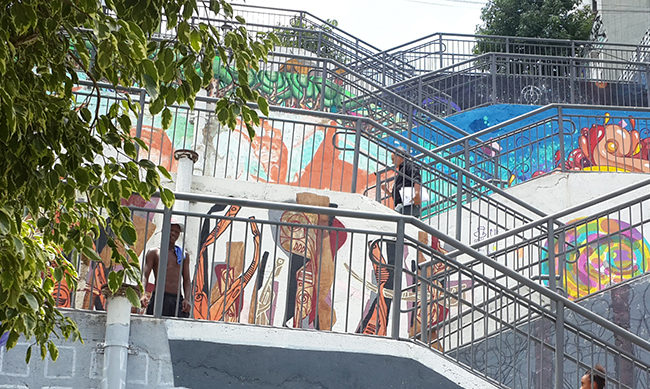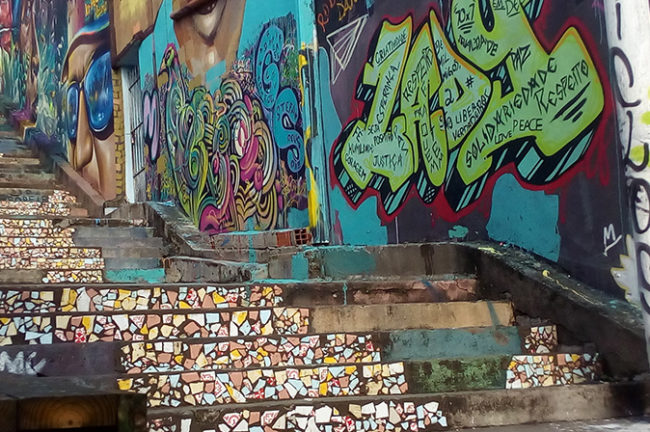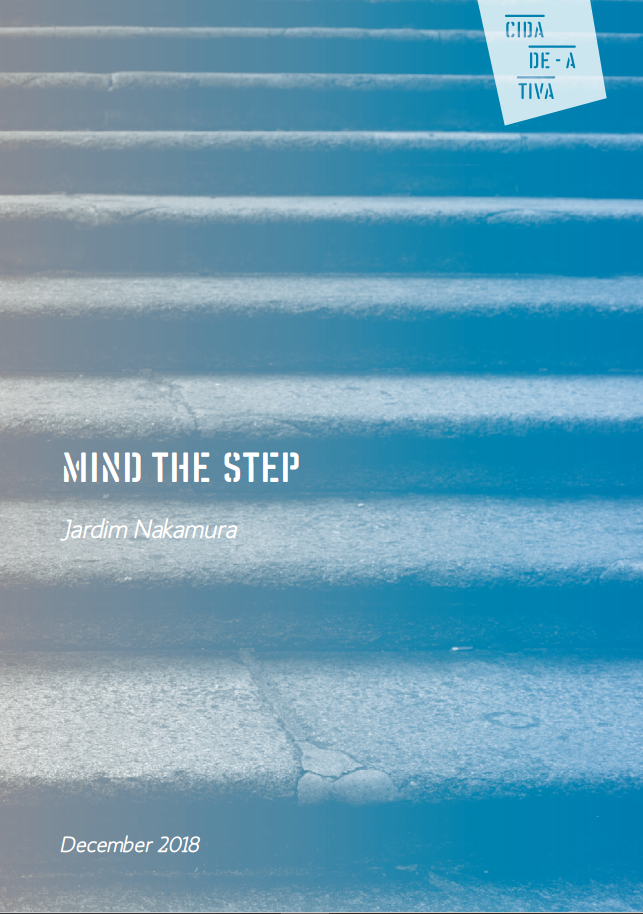
Mind the Step Jardim Nakamura
The fifth edition of Mind the Step initiative took place from March to August in a staircase in Jardim Nakamura, a southern neighbourhood in São Paulo. Cidade Ativa’s team worked with the local community and received support from HealthBridge Foundation of Canada and UN-Habitat (United Nations Human Settlements Programme) through a Call for Proposals from the Global Public Spaces Programme financed by Block by Block.
The chosen staircase is located at Rua Agamenon Pereira da Silva, one of the main commercial streets in the neighbourhood and close to another staircase which was renovated by the initiative in 2016. The selection of this staircase considered its important use as a shortcut for the population to access the local stores and the bus stops. However, regardless of its potential for use as a plaza, there is barely anyone using it for meeting or leisure activities.
The first activities were data collecting and interviews with the population held in April 2018. The analysis evidences the main problems being lack of maintenance, irregular garbage disposal and poor street lighting. For solving this situation, Cidade Ativa’s team looked for local support with the school community (mainly students, parents, teachers and staff from the E.E. Oscar Pereira Machado), neighbourhood associations, local artists and the local government authority (Prefeitura Regional M’Boi Mirim). Co-creating and engaging with the population and local stakeholders were fundamental for assuring the community needs were represented on the staircase transformation.
Intending to give voice and tools for the children to participate in the project, a 3-days-workshop was held with 40 local students by the end of May 2018. The first day started with a space recognition through a “walk to school bus” activity coordinated by Instituto Instituto Corrida Amiga and Cidade Ativa. Then, part of the students engaged in a 2-days Minecraft workshop and developed design proposals for the intervention: installing benches, tables and trash cans, planting trees and building planters, painting walls and steps, improving the lighting, painting a crosswalk and pedestrian safety signage, among others.
In the last day, the whole community and local leaders were invited for an open activity in the staircase. It involved a picnic and paint and poetry activities for children, as well as data collection activities (through the interactive panels) painting, poetry for the children and other ludic activities. This is an important moment for the population to experience the staircase in a different way, becoming aware of its potentiality as a leisure space. For Cidade Ativa’s team, it was a moment of talking to people and better understanding their demands and ideas for transforming that space.
In the following days, Cidade Ativa’s team translated all information collected in the previous steps to a final design proposal, further approved by the local community and students who took part in the Minecraft workshop. The local government authority was also fundamental, as many of the necessary space improvement needed their direct action, like the repair and maintenance of walls and floor, but also with implementing new road safety signs.
At the first weekend of August, the big intervention workshop took place, bringing together local artists (Ciclo Social Arte) – responsible for the graffitis in the houses facades and walls (with support of paint donated by AkzoNobel Brasil); Zoom Urbanismo, Arquitetura e Design team was responsible for the production and got a hand by the community to assemble the urban furniture (picnic table, benches, slide, blackboard and community library); Novas Árvores Por Aí were responsible for the execution of the planters for rainwater drainage; Cidade Ativa team had an overall coordinating role and lead the wall paintings with students from E.E. Oscar Pereira Machado; Família Nakamura and other volunteers helped with all the activities, being essential for the success of the action.
By the end of August, the research team returned to the site and collected post-intervention data based on the methodology applied before any work was done. This permitted a impact evaluation of the intervention. The results confirmed that the space is being used by more users during the day for stationary activities (chatting, resting or playing), specially children and elders. Users also noticed a improved maintenance from the local government authority, as well as trash cans, two new concrete tables and benches installed by them. As for now, the space activation and better care with maintenance have been efficient to keep the staircase cleaner. Besides that, people feel much safer to use the space now, an opposite scenario from the action start a few months before. The collaborative approach to the intervention implementation was fundamental so the constant space monitoring is kept by the community, as well as its use of this public space with better comfort and safety.
For details on the action and methodology used, download the Summary Report Mind the Step – Jardim Nakamura.
DOWNLOADS




